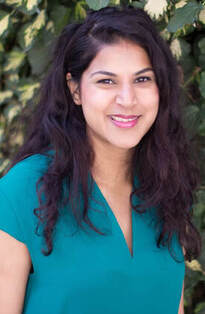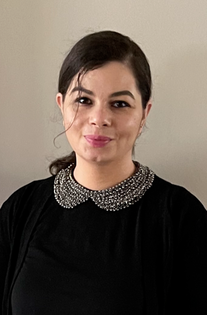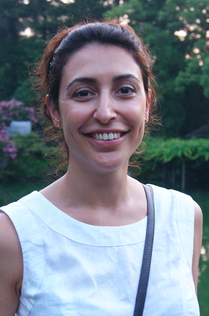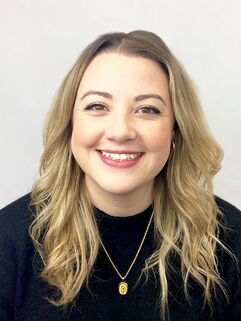Cognitive Behaviour Therapy for Obsessive Compulsive Disorder
Those suffering with Obsessive Compulsive Disorder experience intense and distressing intrusive thoughts which they manage by doing repetitive behaviours. These thoughts and behaviours often interfere with day to day life, affecting work, relationships and school.
Our approach
Our psychologists offer evidence-based treatment for OCD in line with the guidelines set by the National Institute for Health and Care Excellence (NICE). We understand how difficult it can be to seek help for OCD because intrusive thoughts can often feel terrifying to talk about and it can be hard to know if you are struggling with OCD. Our approach is empathic and collaborative. We will work with you and support you in sharing your difficulties and plan together how we will work on the difficulties. We have experience in working with all OCD worries, including contamination, sexual, relationship, violent and harm worries.
What can I expect from the first meeting?
Assessment is a first meeting and typically happens over two sessions with each session lasting around 50 minutes. You will meet with a psychologist to complete the Yale Brown Obsessive Compulsive Scale (child version for children). This is the golden standard assessment for OCD and helps us to get a full picture of the OCD. We will also ask you about any other difficulties, any previous therapy and your goals for therapy. Once we complete the OCD assessment scale, we will make recommendations for the number of sessions that we feel you need. We may also ask you to complete questionnaires. These questionnaires help us understand whether there are difficulties other than OCD that we need to speak about.
Children only: Parents or family members are invited to attend part or the full first meeting. We will start the meeting altogether and agree how to best involve parents and/or family members. We encourage teenagers to have at least half of the meeting on their own if they are comfortable with this. Younger children can have parents there for the full meeting.
What can I expect during therapy (CBT for OCD)?
Therapy is typically 10-20 sessions. Sessions are weekly and are 50 minutes long (unless agreed otherwise).
Adults: The first few sessions involve learning about OCD. We will explore how common intrusive thoughts are and start mapping out together what is maintaining your OCD. We will then move onto using a theory A and B framework. This framework helps us understand what made OCD take root in your life and helps us find another way of looking at the OCD problem. We will do behavioural experiments including Exposure and Response Prevention (ERP) to test out a new way of living life. You will be given tasks to complete between sessions. Our final sessions will be focussed on what you have learnt in therapy and how to manage any setbacks.
Children: The first few sessions involve learning about OCD and developing an Exposure and Response Prevention (ERP) hierarchy. We will support you in completing tasks within the session and set tasks for homework. Parents will be asked to attend at least the final 10 minutes of sessions for children aged between 12-16 years. Our final sessions will be focussed on what has been learnt in therapy, how to manage any setbacks and parents role in supporting progress.
How do I maintain the progress I made during therapy?
We will offer you between two and four further sessions after you finish therapy to help you keep on track with the progress made during therapy. How often these sessions happen will depend on individual need.
Important information
Assessments and therapy are delivered by qualified clinical psychologists who have training, expertise and experience in OCD assessment and therapy, both in the NHS and in private clinical practice.
If OCD is the main difficulty, then we will arrange to offer you CBT for OCD. If other difficulties are more interfering with your day-to-day life such as social anxiety or general anxiety, then we will work on this in therapy first before moving onto OCD difficulties.
Young people and adults with Autism and ADHD will likely need specific sessions to help their understanding of Autism and ADHD and how it links with OCD.
We are clinical psychologists and not medical prescribers. If a diagnosis if given and you wish to pursue medication options, we can recommend a private psychiatrist or we can send your assessment report to your GP who can refer you to NHS services.
Our approach
Our psychologists offer evidence-based treatment for OCD in line with the guidelines set by the National Institute for Health and Care Excellence (NICE). We understand how difficult it can be to seek help for OCD because intrusive thoughts can often feel terrifying to talk about and it can be hard to know if you are struggling with OCD. Our approach is empathic and collaborative. We will work with you and support you in sharing your difficulties and plan together how we will work on the difficulties. We have experience in working with all OCD worries, including contamination, sexual, relationship, violent and harm worries.
What can I expect from the first meeting?
Assessment is a first meeting and typically happens over two sessions with each session lasting around 50 minutes. You will meet with a psychologist to complete the Yale Brown Obsessive Compulsive Scale (child version for children). This is the golden standard assessment for OCD and helps us to get a full picture of the OCD. We will also ask you about any other difficulties, any previous therapy and your goals for therapy. Once we complete the OCD assessment scale, we will make recommendations for the number of sessions that we feel you need. We may also ask you to complete questionnaires. These questionnaires help us understand whether there are difficulties other than OCD that we need to speak about.
Children only: Parents or family members are invited to attend part or the full first meeting. We will start the meeting altogether and agree how to best involve parents and/or family members. We encourage teenagers to have at least half of the meeting on their own if they are comfortable with this. Younger children can have parents there for the full meeting.
What can I expect during therapy (CBT for OCD)?
Therapy is typically 10-20 sessions. Sessions are weekly and are 50 minutes long (unless agreed otherwise).
Adults: The first few sessions involve learning about OCD. We will explore how common intrusive thoughts are and start mapping out together what is maintaining your OCD. We will then move onto using a theory A and B framework. This framework helps us understand what made OCD take root in your life and helps us find another way of looking at the OCD problem. We will do behavioural experiments including Exposure and Response Prevention (ERP) to test out a new way of living life. You will be given tasks to complete between sessions. Our final sessions will be focussed on what you have learnt in therapy and how to manage any setbacks.
Children: The first few sessions involve learning about OCD and developing an Exposure and Response Prevention (ERP) hierarchy. We will support you in completing tasks within the session and set tasks for homework. Parents will be asked to attend at least the final 10 minutes of sessions for children aged between 12-16 years. Our final sessions will be focussed on what has been learnt in therapy, how to manage any setbacks and parents role in supporting progress.
How do I maintain the progress I made during therapy?
We will offer you between two and four further sessions after you finish therapy to help you keep on track with the progress made during therapy. How often these sessions happen will depend on individual need.
Important information
Assessments and therapy are delivered by qualified clinical psychologists who have training, expertise and experience in OCD assessment and therapy, both in the NHS and in private clinical practice.
If OCD is the main difficulty, then we will arrange to offer you CBT for OCD. If other difficulties are more interfering with your day-to-day life such as social anxiety or general anxiety, then we will work on this in therapy first before moving onto OCD difficulties.
Young people and adults with Autism and ADHD will likely need specific sessions to help their understanding of Autism and ADHD and how it links with OCD.
We are clinical psychologists and not medical prescribers. If a diagnosis if given and you wish to pursue medication options, we can recommend a private psychiatrist or we can send your assessment report to your GP who can refer you to NHS services.
Team members offering CBT for OCD:
Resources
The resources below include self-help, educational materials and therapy workbooks. We have shared these here because your psychologist may ask you to access some of the resources below at specific times of therapy.
National Institute for Health and Care Excellence guidelines for OCD
obsessivecompulsive-disorder-and-body-dysmorphic-disorder-treatment-pdf-975381519301.pdf
Paper on CBT for OCD adapted for Autism. (Gazal Jones and Amita Jassi, 2020)
Videos
How OCD is motivated to keep you safe (and how you can motivate yourself to act against it)
Professor David Veale
OCD and Autism
Dr Gazal Jones and Sarah Wedge
Transition to adult services
Dr Gazal Jones
Family accommodation
Dr Maxine Howard and Dr Sasha Walters
Unstuck
Children talking about OCD and treatment
OCD is not me
Young people, parents and professionals talking about OCD and treatment for OCD.
Books
Adults
Break Free from OCD: Overcoming Obsessive Compulsive Disorder with CBT
Fiona Challacombe, Victoria Bream Oldfield & Paul M Salkovskis
Overcoming Obsessive Compulsive Disorder: A Self-Help Guide Using Cognitive Behavioural Techniques
David Veale & Rob Willson
Silent Rituals of the Mind: Living With OCD
Andrew Colley
Taking Control of OCD: Inspirational Stories of Hope and Recovery
Rob Willson and David Veale
Parents
Breaking free from OCD
Jo Derisley, Isobel Heyman, Sarah Robinson & Cynthia Turner
Young people
Stand Up to OCD! A CBT Self-Help Guide and Workbook for Teens
Kelly Wood & Douglas Fletcher
CBT workbook for young people
Cynthia Turner, Georgina Krebs & Chloe Volz
Challenge Your OCD!: A CBT Workbook for Young People with ASD
Amita Jassi
Other
Parent support groups
OCD Action
Free one day parent workshop



